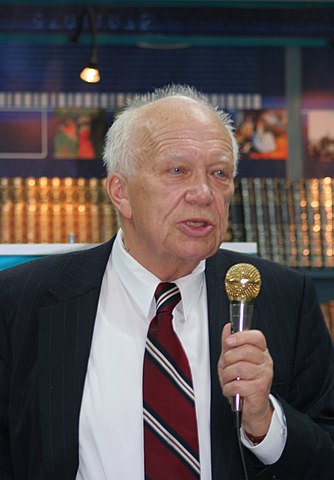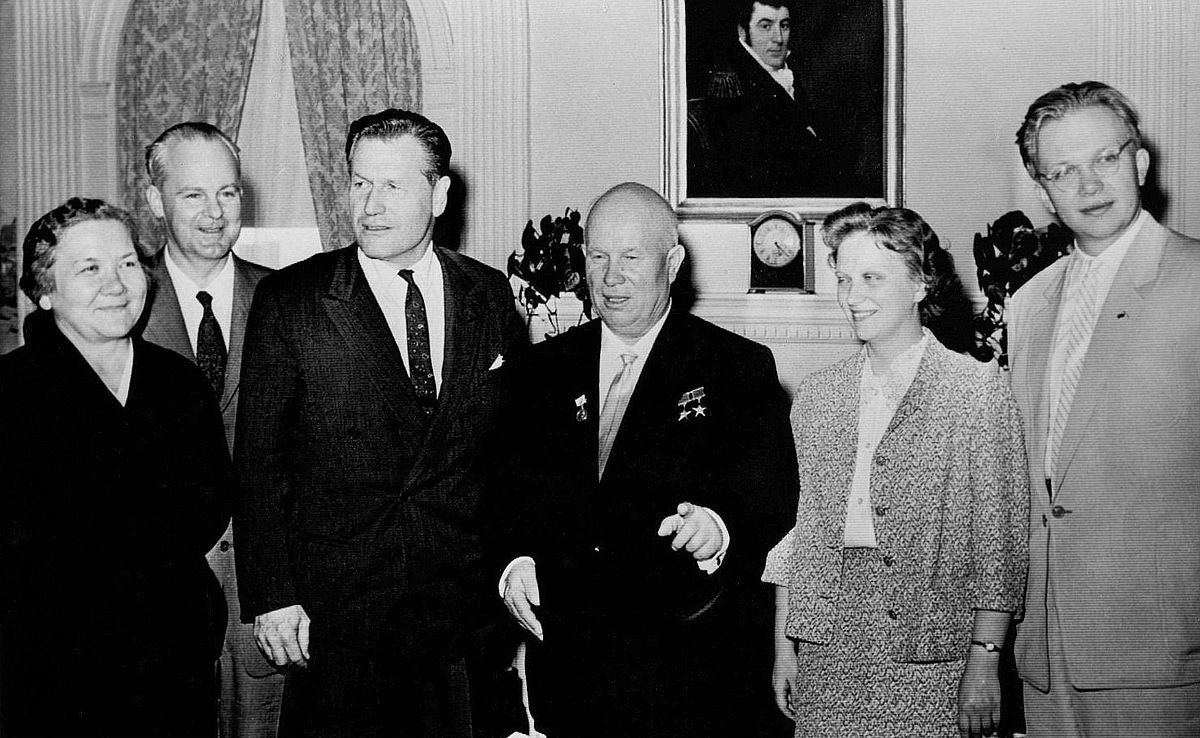Much of what we know today about the leadership of the Soviet Union during the Cold War is attributable to the late son of Nikita Khrushchev.
-
July/August 2020
Volume65Issue4

Late last month, Sergei Khrushchev, Russian scholar, scientist, and son of Soviet leader Nikita Khrushchev, died at age 84 in his home in Rhode Island. In addition to his half century in the Soviet Union, where he was born and educated, the younger Khrushchev spent almost 30 years here as a naturalized U.S. citizen. During that time, he established himself as a preeminent authority on U.S.-Russia relations and Cold War history, writing several books on the subject, lecturing across the country, and serving in distinguished positions at some of the nation’s top colleges, including Brown and Harvard University.
American Heritage also had the privilege of publishing Sergei's work over the years. The author and essayist contributed four feature articles to the magazine, exploring everything from the Cuban Missile crisis to the day the Soviets shot down the U-2. The latter story, published in 2000, offers an inside and hardly-before-seen look at the Kremlin's military apparatus, which it used to destroy one of the most sophisticated pieces of technology the U.S. had on its side, a supposedly "invulnerable" American spy plane. The former piece, published four years later, meanwhile recounts in play-by-play fashion the harrowing nuclear standoff as it was experienced not by leaders in the U.S., of which much has been written, but by those in the Soviet Union itself.
"Differences in civilization affect a country’s vision, not only of the future, but of the past,” Sergei wrote in that article, explaining how the Kremlin's role in the crisis had been miscast and misunderstood by American scholarship. “Every country has its own historical mythology.”
Being able to analyze that mythology when it came to U.S.-Russia relations—being qualified, as an insider, to pull back the Iron Curtain and shed greater light on the Cold War as it was fought on both sides—was one of Sergei's unique gifts. And it was especially helpful in elucidating the legacy of his father. In another piece for American Heritage, again about the Cold War seen from the Kremlin's side, Sergei retraced the former Soviet premier's handling of the sustained conflict through his own memories of the events. Khrushchev is depicted not as the head of an "Evil Empire," but a leader as complicated and statesmanlike as any in the United States.
“Sergei dedicated his life to expand and explain his father's legacy,” Nina Khrushcheva, Khrushchev’s niece and a professor of International Affairs at The New School, told American Heritage following her uncle’s passing. “Given their closeness, he was in a perfect position not only to become Nikita Khrushchev's chief biographer; he also provided in-depth insights into Khrushchev's thinking and actions.”
“Without Sergei, half if not more of what we know today about the Kremlin leadership and the mindset of the era, both personal and political, would have never been known,” she added.
We’re grateful that Sergei was able to share his insights with us. For a full list of Khrushchev's American Heritage pieces, see below:
How My Father and President Kennedy Saved The World, October 2002
Finding The Killers Is The Easy Part, November 2001
The Day We Shot Down The U-2, September 2000
The Cold War Through The Looking Glass, October 1999


